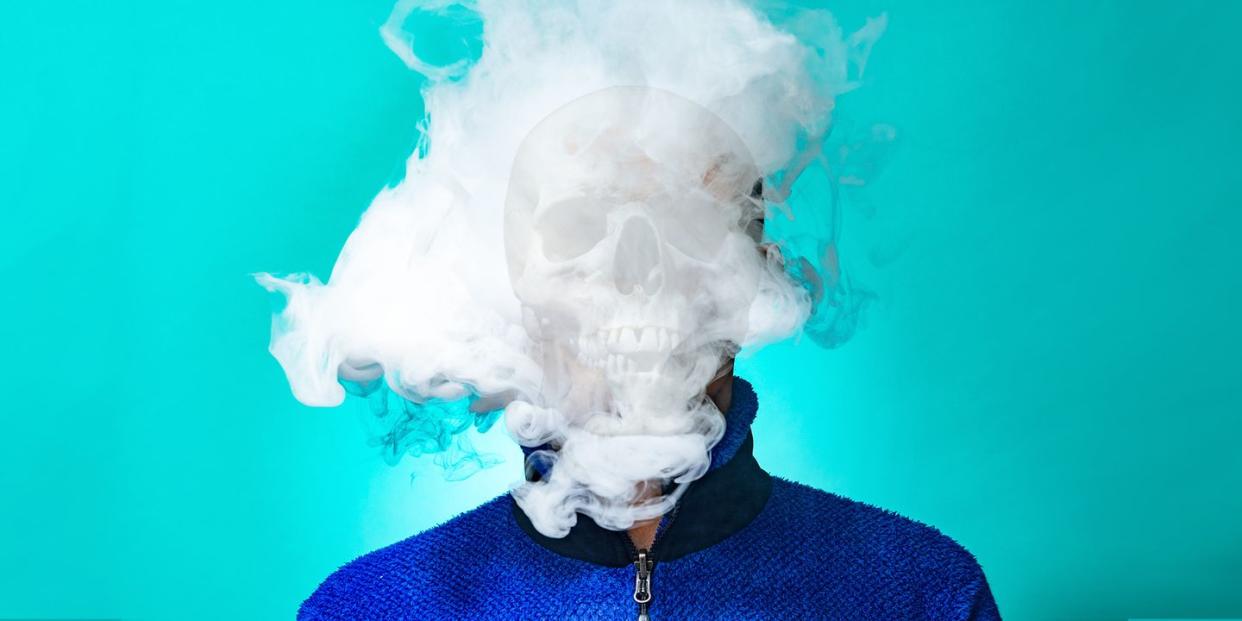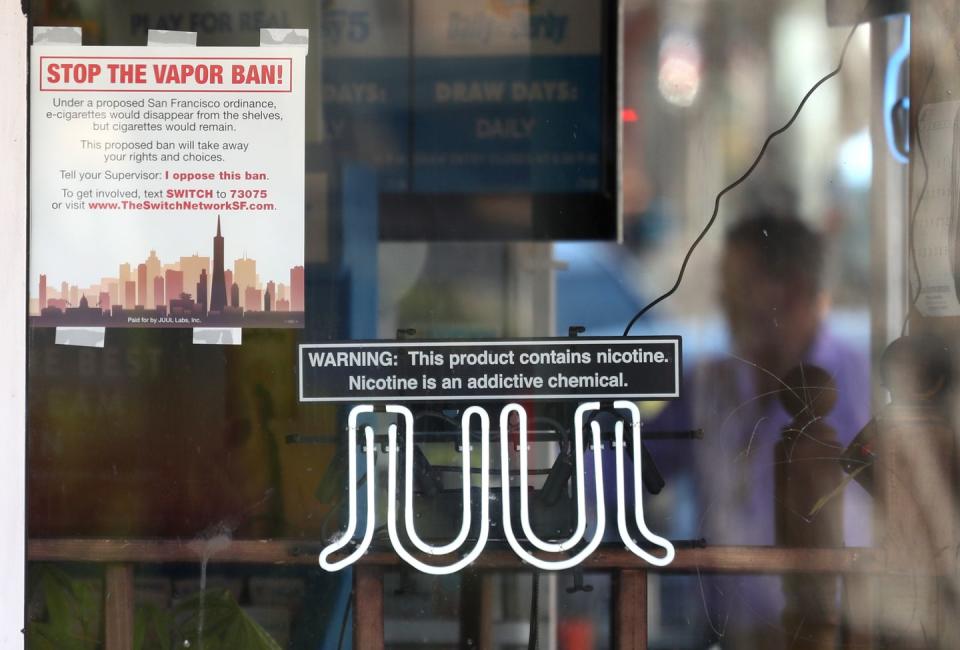The Majority of Vape Illnesses Are Related to Bootleg THC Pods. But Not All of Them.

Vaping in America is, in short, a crisis. In an era when there isn't much common ground for Americans, the move against e-cigarette use seems to be gaining support across the board. In the past month, the President called for a nationwide ban on flavored nicotine pods that attract younger users (and then kinda sorta backpedalled), as a handful of states enacted their own restrictions. The CEO of JUUL stepped down amid the chaos. Newly published research on mice even suggests vaping nicotine leads to mouse cancer.
Like a slow-burning Black Mirror episode, vaping is killing people. And more than governmental regulatory practices, Americans are curious about what exactly is going on and how worried they should be. In short, a healthy dose of concern wouldn't be frowned upon.
Since the Centers for Disease Control and Prevention (CDC) opened an investigation into e-cigarette use in June, over 1,000 cases of vaping-related illness have been reported, with 18 deaths on record. Most are attributed to THC pods deemed "bootleg" because they were created outside of a commercial setting. That lack of regulation can lead to any number of harmful ingredients, including pesticides, being put into the pods. But according to the CDC, that doesn’t exonerate commercially produced devices like JUULs—nearly no vape available on the market has been approved by the FDA.
Oh, and perhaps most concerning: Of those over a thousand people affected, the CDC found that 80 percent were under 35 years old. By the numbers, things aren't looking good.
Dr. Robert Redfield, director of the CDC, is worried that these growing statistics are only "the tip of the iceberg," especially with the way that e-cigarette use has caught on in recent years. The CDC just opened its investigation—and Redfield's worried that it's far from over. He hopped on the phone with Esquire to talk about different types of e-cigarettes, the issue behind bootleg pods, and emerging problems (see: secondhand vapor) that Americans may not have even considered yet.

Esquire: The majority of vaping-related illnesses are connected to products with THC, not CBD or nicotine. Is there more cause for concern when it comes to vaping THC than there is for vaping products containing CBD or nicotine?
Dr. Robert Redfield: I think taking a step back, these products really weren't intended to be deposited in the alveoli of your lungs. Whether it's the THC or the oil or vitamin E or the flavor, I think we'll find there's a number of products that lead to what we would call a chemical pneumonitis.
You are right that of the cases that we've been able to investigate more thoroughly, which is a little over 500 of the cases, over three-quarters of them were associated with THC-containing products, as reported. And a number of those were non-regulated THC product, so street market. But I think it's important also to comment that about 16 percent [of cases] so far were strictly nicotine-containing products.
ESQ: Are there any specific substances or materials found in vaping products that people might be concerned about?
Redfield: I think the important message is to recognize you have no idea what you're inhaling. And the alveoli of the lung is a very sensitive tissue. When it's damaged, it can see really compromised function—that is, to be able to exchange our oxygen and carbon dioxide and allow us to have, if you will, life-saving breaths. A lot of these bootleg products have material in there that wasn't meant to be there. For example, we find pesticides in there. You don't want to be sucking pesticides into your lung.
ESQ: How do you define a "bootleg" pod, be it THC, CBD, or nicotine-related?
Redfield: [Bootleg pods] are really a product that is made using non-regulated products, and I think, unfortunately, that's a significant part of the current market, particularly in individuals that are using THC-driven products. And a lot of the vaping products, as you know, are sort of self-made by individuals.
ESQ: What about products like JUUL that are commercially made but haven't been FDA-approved?
Redfield: We recommend that you consider one of the multiple FDA-approved products that have gone through the process for efficacy and safety as alternatives to e-cigarettes, which, truthfully, are not products that had been approved.
ESQ: Is there any reason to believe that there's a regional connection to vaping-related illnesses?
Redfield: You know, if we do talk about vaping in general, particularly among middle school and high school students, you'll see that that's also very non-geographic. It's very diffused. And I think if you look at the deaths that are reported, you'll also see that's very non-geographic, with several states reporting two deaths, many states reporting one so far. CDC has more than 100 individuals now focused on this investigation, largely to define it from a surveillance point of view, but obviously the goal is to try to understand causation.
ESQ: What about secondhand vapor? Is that a concern in the same way that, say, secondhand cigarette smoke is?
Redfield: I remember when the debate started about secondhand smoke, when I was much younger, and everyone thought there were no consequences to it. Well, obviously, we know that that's not true. With these chemicals in an aerosolized form that people can inhale into their lungs, I think you have to assume that it's only a matter of time that we begin to understand the health consequences of [e-cigarettes]. I don't believe the answer is going to be a good seal of safety.
I do think that as data's gathered, you should probably work from the hypothesis that it's very possible that secondhand smoke, whether it comes from combustibles or from vaping, could have significant health consequences.
This interview has been condensed and edited for clarity.
You Might Also Like

